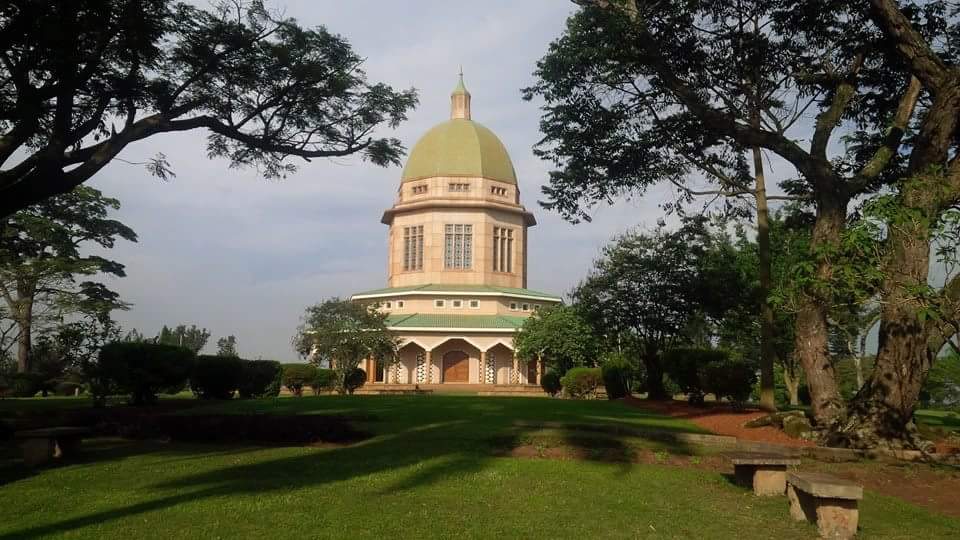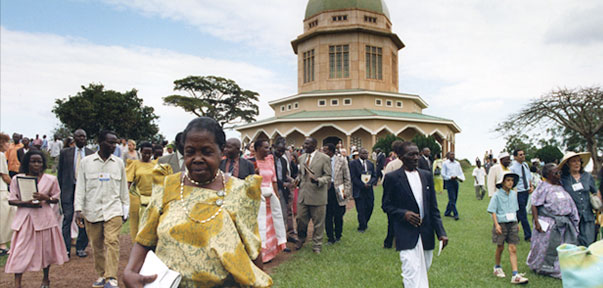The Bahá’í faith was founded in 1844 by Bahá’u’lláh, born Mírzá Ḥusayn-‘Alí Núrí from Persia, now Iran. Bahá’u’lláh means “the glory of God” in Arabic, and the Baha’i faith or religion teaches the unity of all religions and the unity of humanity.
With nine temples around the world – in the U.S., Chile, Panama, Germany, Samoa, India, Australia and Cambodia – Uganda’s Bahá’í Mother Temple of Africa is the only Bahá’í temple on the continent.
Located about three kilometers from Kampala, the capital city of Uganda, the temple stands at almost 38 meters (125 feet) tall and was the tallest building in East Africa when it was constructed.

With a religion having followers in other East African countries like Chad and Kenya, many have wondered why Uganda was chosen as the location for the African temple.
A report by Culture Trip says that in the 1950s, English and Iranian followers of the faith arrived in Uganda with the hopes of introducing Bahá’í to local citizens.
Gradually, the religion began to have followers – over 100 local people – and in 1959, the foundation stone was laid for Africa’s first and only Bahá’í temple, followed by a Bahá’í Intercontinental Conference for Africa held in Kampala. Completed in January 1961, the temple has since received hundreds of visitors, believers and non-believers alike.

PHOTO: WIKIPEDIA
The dome-like structure, with grounds that have various spots to sit, relax and meditate, is filled mostly on Sundays when followers go for a Sunday Service in “suitable attire.” The temple also gets filled on notable days like the Twin Holy Birthdays which commemorate the birth of Bahá’u’lláh and Báb, the most important figures in the Bahá’í faith.

The Bahá’í faith does not baptize. Rather, when children turn 15, they declare their faith and are subsequently issued with declaration cards. New converts go through the same process.

ALAMY STOCK PHOTOS
In Uganda, the Baha’is, just like their brothers and sisters in other parts of the world, engage in activities aimed at promoting the wellbeing and betterment of their communities. These include providing followers with moral and spiritual education as well as participating in many discourses such as discussions on science, religion and development.










